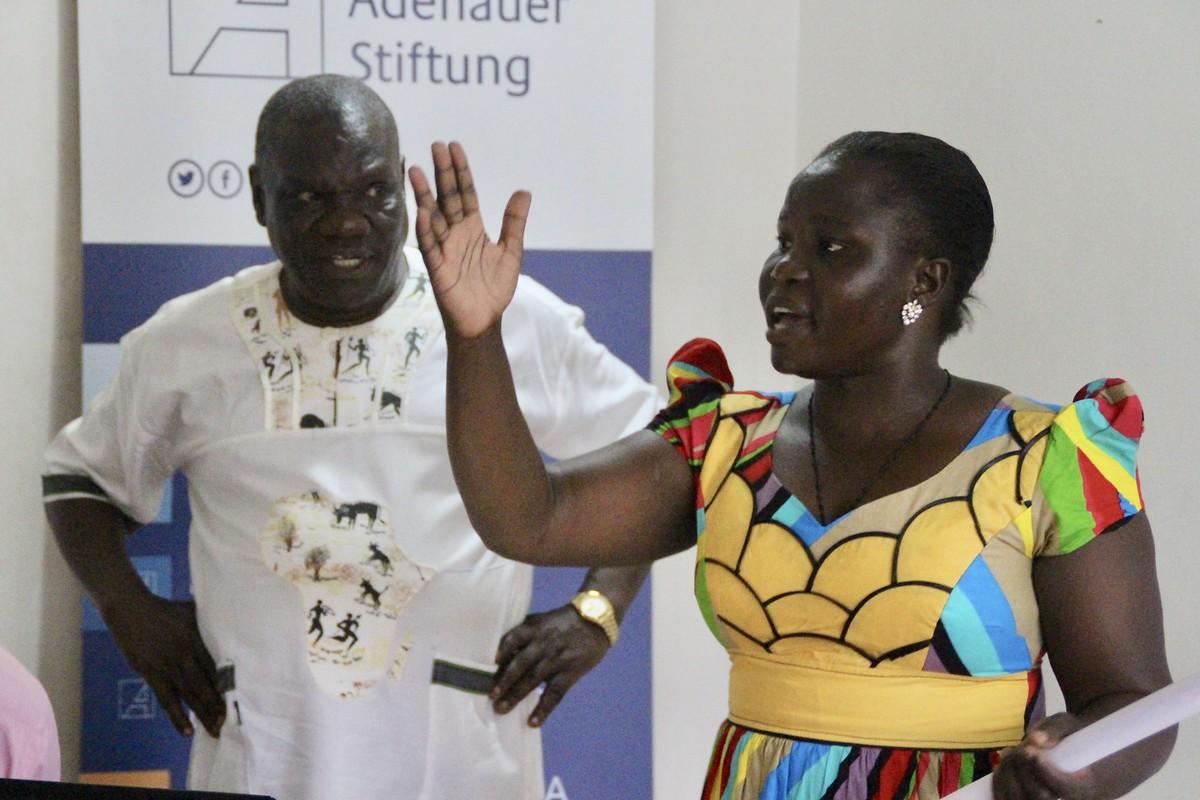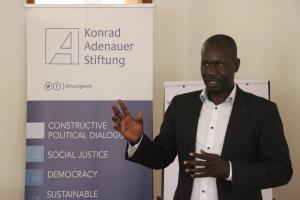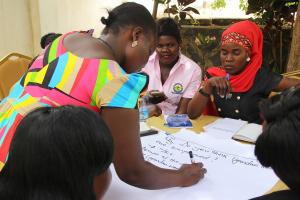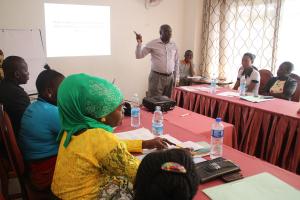Young female leaders are eager to shape the women´s youth agenda in Uganda - Foundation Office Uganda and South Sudan
Event Reports
Women´s participation during Ugandan elections and campaigns is still low despite the existence of important constitutional frameworks to assure gender equality in politics. The major reason for this striking lack of female political participation is rooted in the social, economic and cultural construction of gender roles in Ugandan society. These roles often form obstacles for young women who want to represent their interests and needs through holding leadership positions. Additionally, less access to important resources and lack of skills and knowledge in the men-dominated discipline make it hard for women to compete with their male counterpart.
However, elections and electoral campaigns are a crucial opportunity to have all voices heard especially those of underrepresented or stereotyped groups of society, which – in developing countries - often fall to women and youth. To adequately contribute to the democratic system of Uganda, they need a strong platform to address their concerns and challenges to find common solutions and champion the women´s youth agenda in Ugandan politics.
In partnership with the National Youth Council (NYC), KAS has hosted a 2-day training of Secretaries for Female Affairs in Arua from 14th to 16th of March.
Young newly elected female leaders came together to enhance their understanding of the political dynamics and the civic responsibility they hold as a young leader. The format combined a mixture of sessions and lectures about the political system of Uganda in combination with practical activities and group discussions about women empowerment. Through providing informed perspectives on youth leadership and critical aspects of Uganda´s electoral processes, women were motivated to more actively participate in political practices especially in their local districts.
Simon Opoka, moderator of the 2-days training and political scientist kicked off with a first discussion on the necessity of team-building to enhance the roles of female leaders within their executive committee. A basic understanding about the roles and responsibilities of a Secretary for Female Affairs was prevenient, to follow up the conducted session.
Prof. Yasin Olum from Makerere University continued with a lecture on the process and functioning of the voting system in Uganda, leading into a practical activity. Participants were divided into two groups to discuss and brainstorm about two major questions: What is voting and why is voting as a Ugandan citizen so important? What does women empowerment mean and are women in Uganda already empowered through laws and practices?
After presenting the group´s results, participants came together in a final round table discussion to rethink the women´s participation and performance in Ugandan politics and address common challenges.
“Political lawlessness in terms of political violence as well as sexual harassment and low education create great barriers and disadvantages for women to effectively participate and represent their interests in Uganda´s political sphere” as Prof. Olum stated. Later on, participants and trainers had time to discuss about strategies on how to engage more women in the political process.
The second day was all in context of the use of ethics and accountability in politics. “Ethic behavior and accountability go hand in hand with transparency which is crucial for good governance and a strong democracy” as Prof. Olum concluded. Especially young leaders have to understand the importance of these terms right from its roots for more civic responsibility and effective conflict resolution.
The training met its aim of providing young female leaders with professional skills to address challenges and find sustainable, long-term solutions to enhance the overall participation of women in Ugandan politics.






